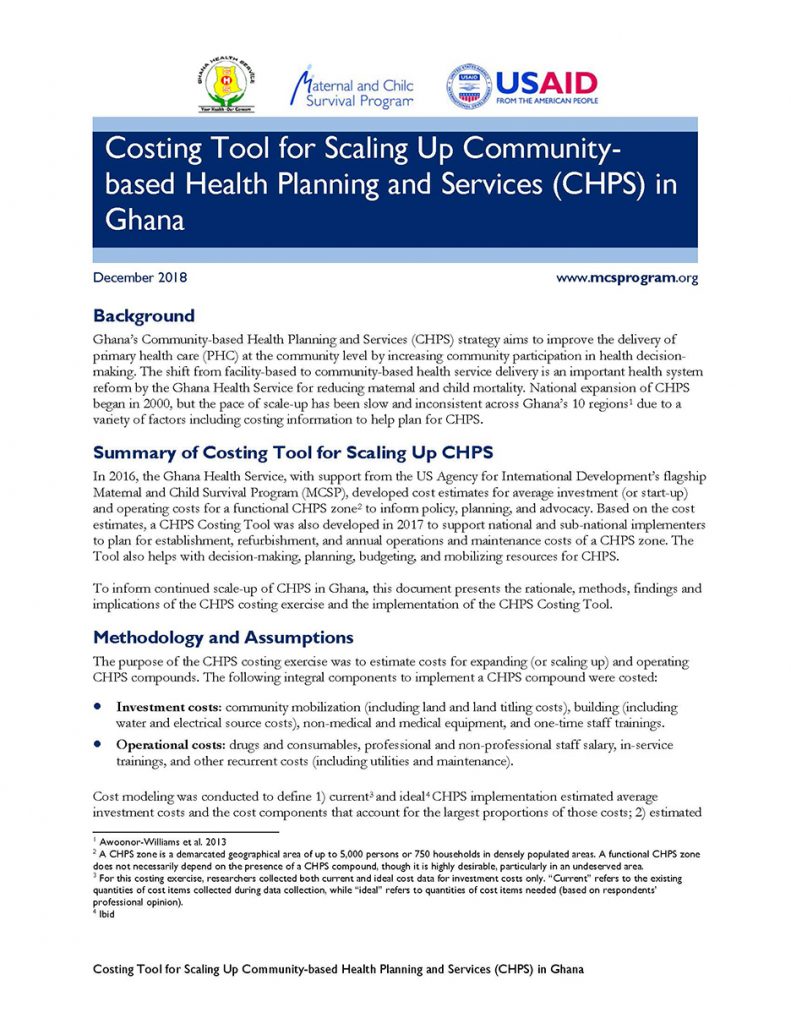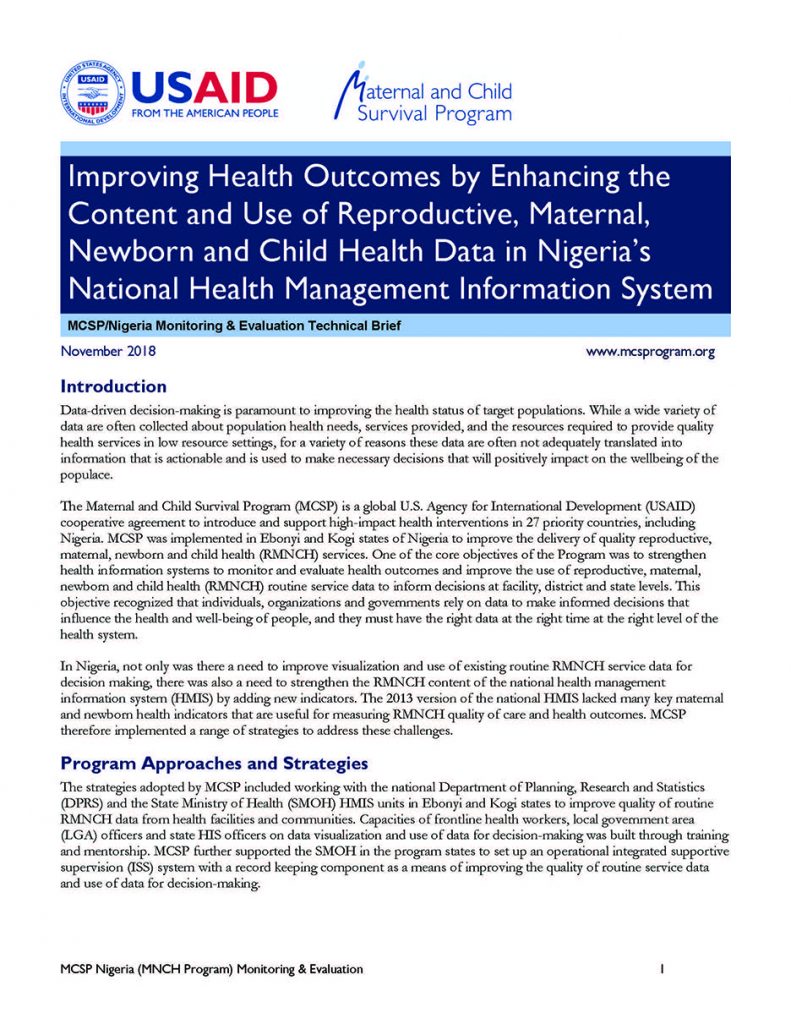
One of the core objectives of MCSP was to strengthen health information systems to monitor and evaluate health outcomes and improve the use of reproductive, maternal, newborn and child health (RMNCH) routine service data to inform decisions at facility, district and state levels. This objective recognized that individuals, organizations and governments rely on data to […]
Read More…
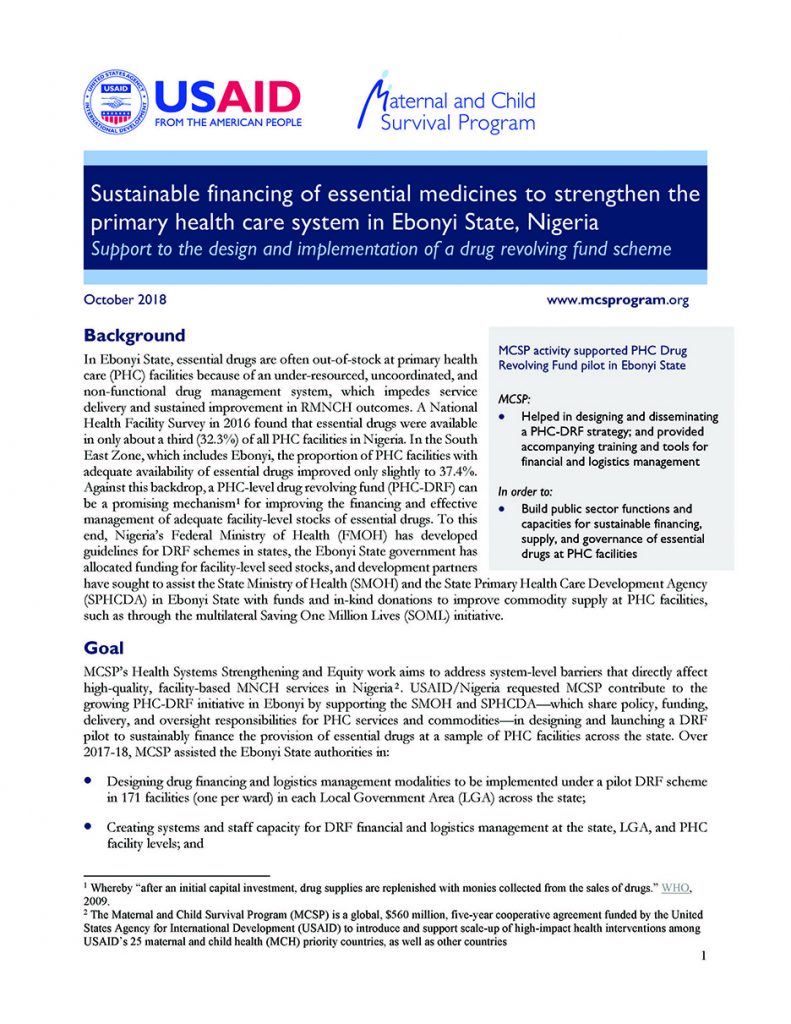
MCSP’s Health Systems Strengthening and Equity work aims to address system-level barriers that directly affect high-quality, facility-based MNCH services in Nigeria. USAID/Nigeria requested MCSP contribute to the growing primary health care- drug revolving fund (PHC-DRF) initiative in Ebonyi by supporting the State Ministry of Health (SMOH) and State Primary Health Care Development Agency (SPHCDA) —which […]
Read More…
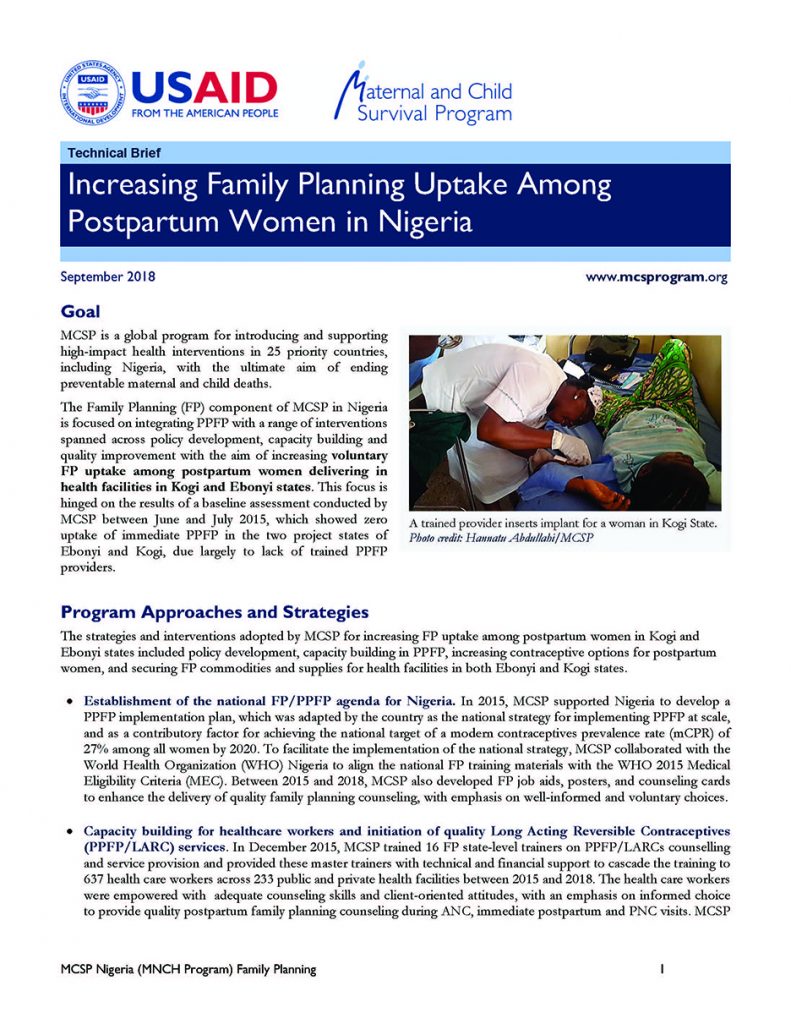
The Family Planning (FP) component of MCSP in Nigeria is focused on integrating PPFP with a range of interventions spanned across policy development, capacity building and quality improvement with the aim of increasing voluntary FP uptake among postpartum women delivering in health facilities in Kogi and Ebonyi states. […]
Read More…
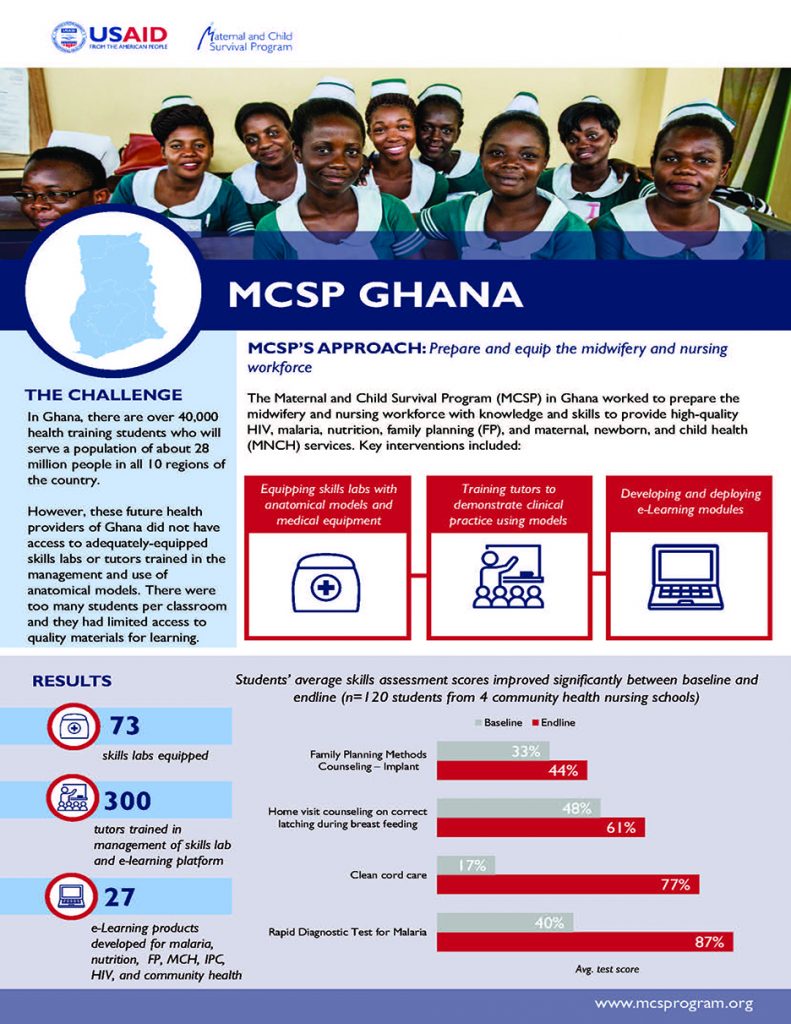
MCSP in Ghana worked to prepare the midwifery and nursing workforce with knowledge and skills to provide high-quality HIV, malaria, nutrition, family planning (FP), and maternal, newborn, and child health (MNCH) services. […]
Read More…
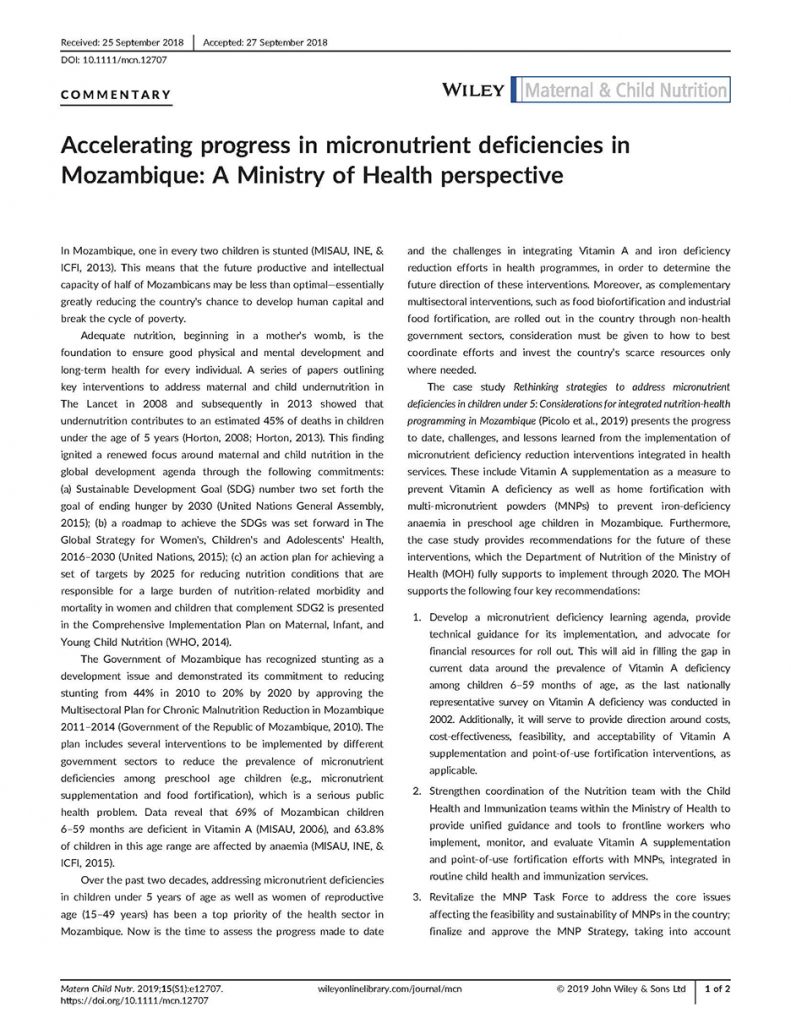
This commentary from the Mozambique Ministry of Health describes the Government of Mozambique’s commitment and support for the key recommendations outlined by Picolo et al. and calls for the engagement of key stakeholders and various government ministries to coordinate efforts to reach this goal. […]
Read More…
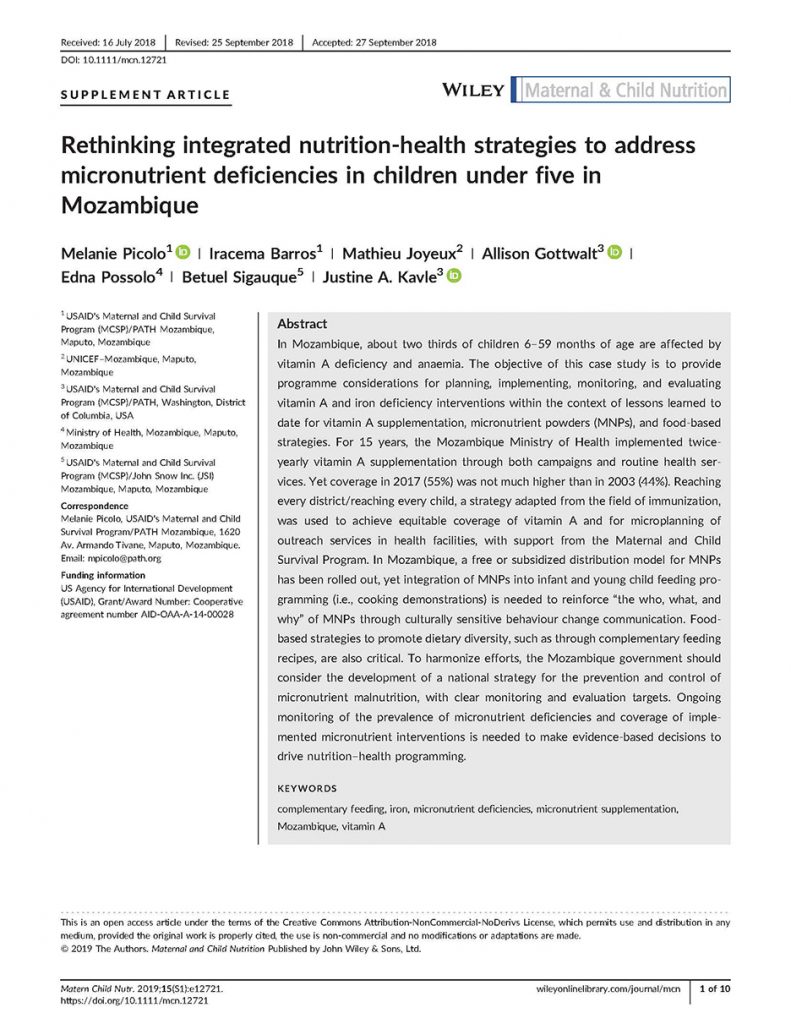
This case study presents progress, challenges, and lessons learned to date for vitamin A supplementation, micronutrient powders (MNPs), and food‐based strategies in Mozambique. Program considerations for planning, implementing, monitoring, and evaluating micronutrient interventions within the health system are also provided. […]
Read More…
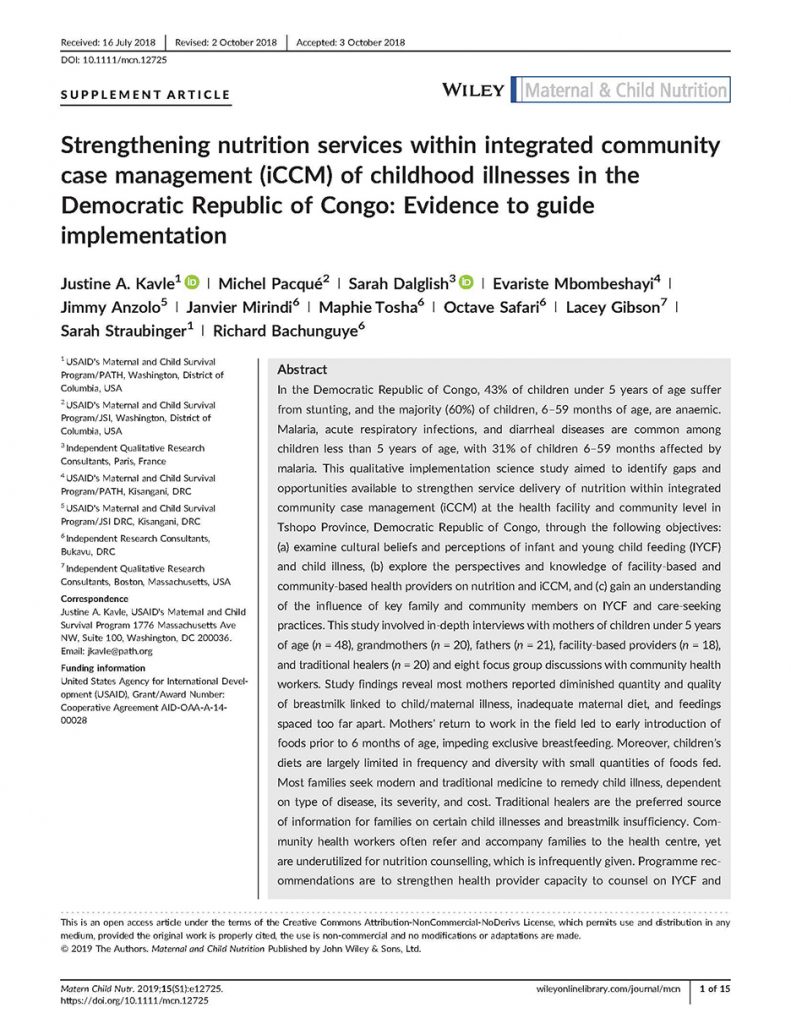
This qualitative implementation science study aimed to identify gaps and opportunities available to strengthen service delivery of nutrition within integrated community case management (iCCM) at the health facility and community level in Tshopo Province, based on findings on the cultural beliefs, perceptions, and knowledge guiding infant and young child feeding (IYCF) and child illness, and […]
Read More…
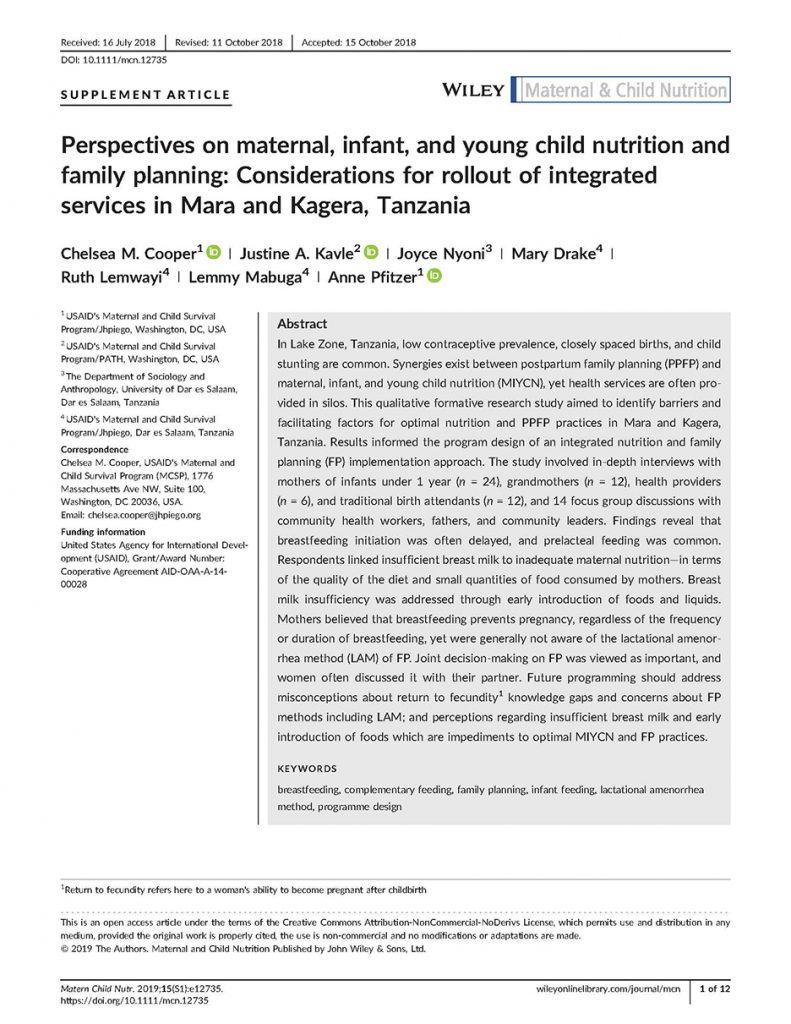
Synergies exist between postpartum family planning and maternal, infant, and young child nutrition, yet health services are often provided in silos. This qualitative formative research study aimed to identify barriers and facilitating factors for optimal nutrition and PPFP practices in Mara and Kagera, Tanzania. Results informed the program design of an integrated nutrition and family […]
Read More…
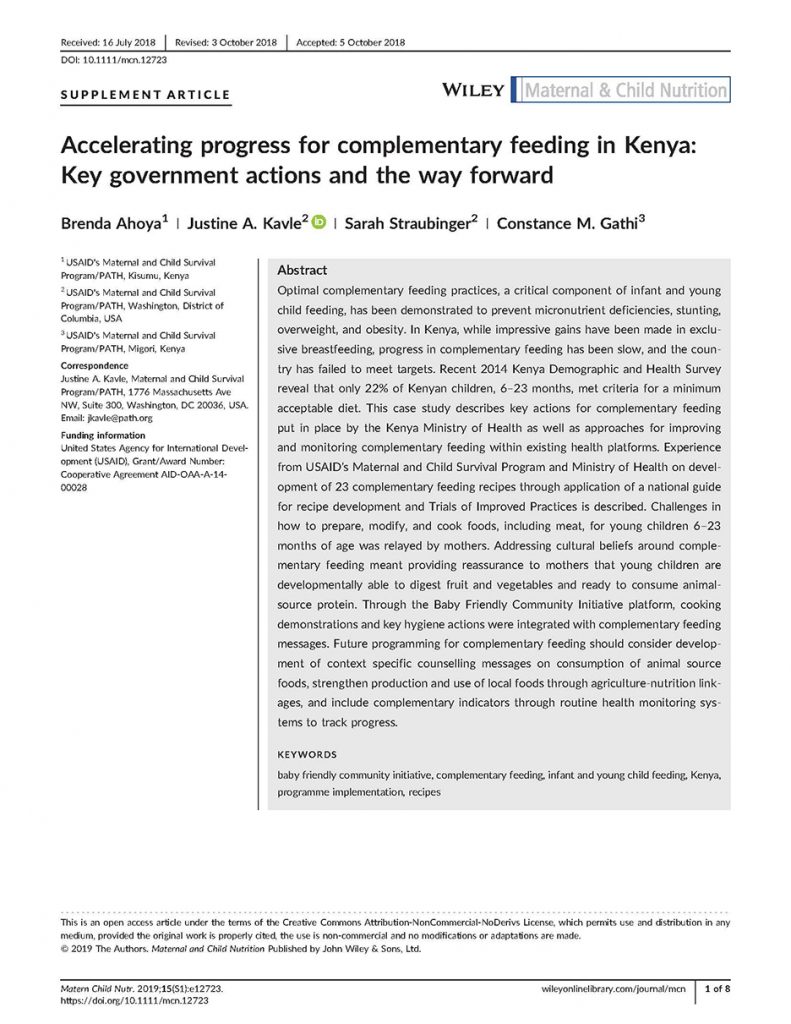
In Kenya, while impressive gains have been made in exclusive breastfeeding, progress in complementary feeding has been slow, and the country has failed to meet targets. This case study describes key actions for complementary feeding put in place by the Kenya Ministry of Health and approaches for improving and monitoring complementary feeding within existing health […]
Read More…




